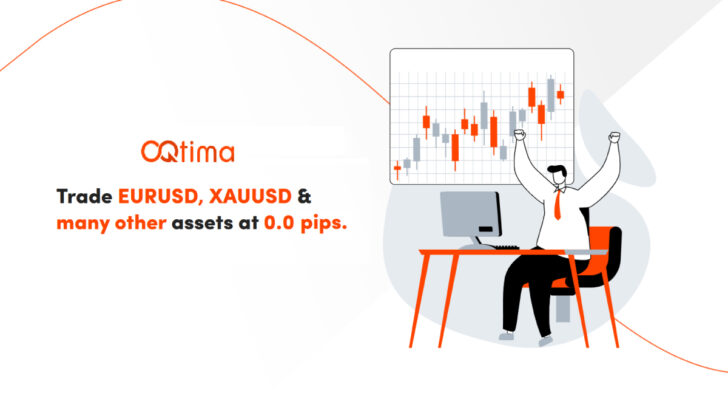Categories
How to trade safe haven assets on Exness?
Trade safe-haven assets like gold, bonds, and currencies on Exness to protect your portfolio during market downturns.


Safe-haven assets are financial instruments that retain or increase value during economic downturns, helping investors manage market risks. Common safe-haven assets include gold, government bonds, the US dollar, the Japanese yen, the Swiss franc, and defensive stocks. These assets share characteristics such as liquidity, permanence, and limited supply, making them attractive during market volatility. Exness provides traders with opportunities to invest in these assets, allowing them to hedge against risk or profit from market movements. Successful trading requires understanding market sentiment, asset correlations, and economic conditions that influence safe-haven assets.
How to Trade Safe Haven Assets on Exness: Gold, Bonds, Forex & Stocks
Secure your investments with safe-haven assets—trade gold, bonds, and currencies on Exness today.
| Safe Haven Asset | Key Features |
|---|---|
| Gold | Limited supply, stable value, independent from interest rates |
| Government Bonds | Low risk, steady income, backed by strong economies |
| US Dollar | Most liquid currency, global reserve status |
| Japanese Yen | Strengthens during market instability, high liquidity |
| Swiss Franc | Stable economy, political neutrality, strong banking sector |
| Defensive Stocks | Resilient industries like utilities, healthcare, and consumer staples |
How to trade safe haven assets on Exness?
What is a safe haven asset? How to trade with Exness?
Investors use safe-haven assets to limit exposure during times of market instability. If traders identify which assets are likely to appreciate and others to decline, they can prepare for market moves.
What is a safe haven asset?
A safe-haven asset is a financial instrument that is expected to retain or even gain value during an economic downturn. These assets have no or negative correlation with the broader economy, meaning they can appreciate in value when markets crash.
Assets often have certain characteristics that enhance their reputation as safe-haven assets, including:
- Liquidity: Assets need to be easily converted into cash at any time
- Functionality: The asset needs to be able to continuously provide a purpose for long-term needs
- Limited supply: supply should never grow faster than demand
- Certainty of demand: assets are less likely to be replaced or obsolete
- Permanence: Assets should not decay or rot over time
Not every safe haven has all of these characteristics, so investors must make judgments about the most appropriate safe havens in the economic environment. It’s important to remember that what makes for a good safe haven in one market downturn may not show the same results in another, so investors must be clear about what they want to gain from using safe-haven investments.
Invest in Safe Haven Assets on Exness
How to trade safe-haven assets
Market downturns are an inevitable part of the market cycle, which means it’s in the investor’s best interest to be as prepared as possible.
In times of financial crisis, assets seen as safe havens tend to outperform the vast majority of the market. While investors often use safe havens to protect the value of their portfolios, it is important for traders to be able to identify safe-haven assets and use this understanding to predict price movements and implement their own strategies.
For example, exiting a “riskier” asset could cause a sudden drop in market prices as investors to flock to safe havens, meaning you might consider exiting any long positions or going short. However, if you are confident that you can identify the current safe haven, it is possible to profit from the price increase.
There is no sure-fire way to trade safe-haven asset patterns, as it all depends on your motives. But whether you want to take advantage of price swings or adjust your positions to protect yourself from falling prices, understanding the prevailing market sentiment around safe havens is crucial.
Examples of safe-haven assets
Popular safe havens can change over time, so it’s important to keep up with investment trends. However, there are a few safe havens that have remained the most popular over the years, including:
- Gold
- Government bond
- Dollar
- Japanese Yen
- Swiss Franc
- Defensive stocks
Invest in Safe Haven Assets on Exness
Gold
When people think of safe havens, they most likely think of gold. As a physical commodity, the price of gold is generally not affected by central bank-determined interest rates, and unlike paper money, the supply of gold cannot be manipulated through operations such as printing.
Perhaps the strongest example of gold as a safe-haven asset came after the 2008 global financial crisis. For example, the influx of investment caused the price of gold to rise by nearly 24% in 2009 alone, and this upward trend continued into 2011.
Many people believe that the decision to buy gold is a behavioral bias based on the history and store of value of gold-backed currencies. In theory, because gold has historically been viewed as a safe-haven asset, investors flock to the precious metal when there are signs of a major market meltdown. Gold as a safe haven has become a self-fulfilling prophecy.
Government bond
Government bonds are essentially the fixed term “I owe you” for a government that pays interest on a regular basis – Treasury bills and notes are a type of bond. The only difference between the two is the full repayment of your previous time. Treasury bills have a maturity of one year or less, while Treasury bills have a maturity of ten years or less.
Investors tend to have more confidence in bonds issued by governments in advanced economies – the most popular being U.S. Treasury bills. Their status as safe-haven assets depends on the U.S. government’s credit profile and the dollar’s high-quality income. With the asset having such a steady income, investors see government bonds as a risk-free haven, especially since any money invested will be repaid in full once the notes mature.
For example, in February 2018, stocks tumbled as bond yields rose, ironically, investors took a safe haven to buy U.S. Treasuries.
US Dollar
For more than 50 years, the U.S. dollar has been one of the most popular safe havens during economic downturns. It has many security features – most crucially, it is the most liquid currency on the foreign exchange market.
This confidence in the U.S. dollar came from the Bretton Woods agreement of 1944, which introduced a fixed currency system and made the U.S. dollar the world’s main reserve currency. Even after the abolition of the system, the U.S. dollar remains a safe-haven asset because it represents the world’s largest economy.
While many believe the dollar’s status as a safe-haven currency will be hurt by heightened volatility caused by U.S. President Donald Trump’s contentious political situation, it still appears to benefit from safe haven flows. For example, the U.S. dollar index rose 5.29% between January 2018 and August 2018, despite trade tensions causing volatility between stock markets and commodities.
Japanese Yen
The yen is considered a safe-haven currency because it often appreciates against the dollar when U.S. stocks and government bonds fluctuate.
After World War II, the Japanese economy was restructured to allow it to catch up with the rest of the global economy. The Bank of Japan (BoJ) is highly regarded and the Japanese yen has become a major global currency. Despite constant government intervention, the yen’s liquidity continues to attract investors in times of financial crisis.
The yen has gained a reputation as a safe-haven asset due to Japan’s high trade surplus relative to debt. The value of foreign assets held by Japanese investors is much higher than what foreign investors owe Japanese assets – this means that when the market is “off risk”, funds are withdrawn from other currencies and flowed into the domestic market, thereby appreciating of the yen.
Another part of the reason the yen continues to act as a safe-haven currency during market turmoil is that everyone thinks it does. Similar to gold, it has become a self-fulfilling prophecy.
Swiss Franc
A study by Germany’s central bank, Deutsche Bundesbank, found that the Swiss franc often appreciates when global stock markets show signs of financial stress.
Common reasons why investors favor the Swiss franc as a safe-haven currency include the political neutrality of the Swiss government, the strong Swiss economy and its well-developed banking sector.
The country’s independence from the European Union also makes it a safe haven for capital in adverse political and economic situations. In fact, during the eurozone crisis, there were huge inflows into the franc, and the Swiss central bank imposed a temporary peg to the euro in an attempt to weaken the national currency.
Defensive stocks
Investors looking to manage risk during a downturn may also choose to turn to defensive stocks, as they tend to outperform the broader stock market during recessions.
Defensive stocks are stocks of companies involved in providing goods and services such as utilities, consumer staples, food and beverages, and healthcare. They are seen as safe-haven assets because they are likely to remain stable even in times of economic uncertainty due to constant demand for the product.
Defense stocks should not be confused with “defense stocks,” which refers to arms manufacturers and other sectors in the arms trade.
FAQs
- What are safe-haven assets?
- Safe-haven assets are financial instruments that retain or gain value during economic downturns.
- Why do investors trade safe-haven assets?
- Investors use safe-haven assets to protect their portfolios from market volatility and economic uncertainty.
- Which safe-haven assets can I trade on Exness?
- Exness offers trading in gold, government bonds, the US dollar, Japanese yen, Swiss franc, and defensive stocks.
- How do I start trading safe-haven assets?
- Sign up for an Exness trading account, deposit funds, and start trading on the MT4 or MT5 platforms.
- Is gold the best safe-haven asset?
- Gold is one of the most popular safe-haven assets due to its historical stability and limited supply.
- Why is the US dollar considered a safe haven?
- The US dollar is the most liquid currency and serves as the world’s primary reserve currency.
- How does the Japanese yen act as a safe-haven currency?
- The yen strengthens during market uncertainty due to Japan’s trade surplus and strong economic fundamentals.
- Are government bonds a risk-free investment?
- Government bonds from strong economies are considered low-risk, providing steady returns and capital security.
- What industries are considered defensive stocks?
- Utilities, healthcare, food, and essential consumer goods industries are classified as defensive stocks.
- Can I profit from trading safe-haven assets?
- Yes, traders can profit by correctly predicting market shifts and price movements of safe-haven assets.
Latest Features
- Close






